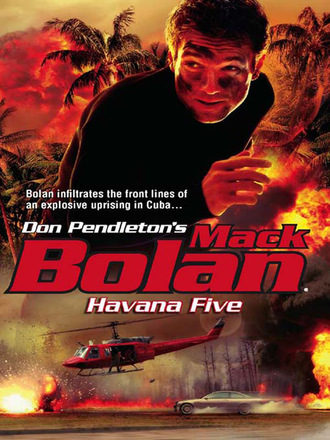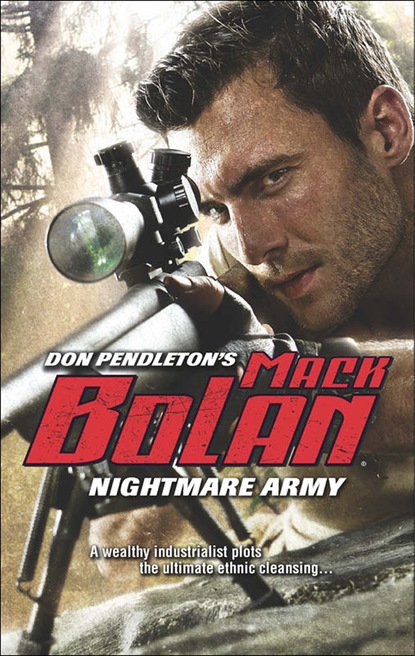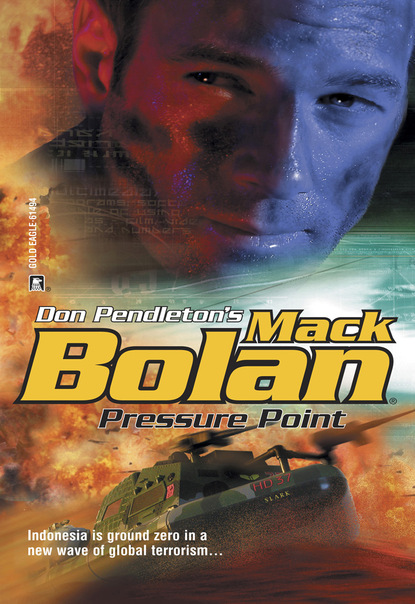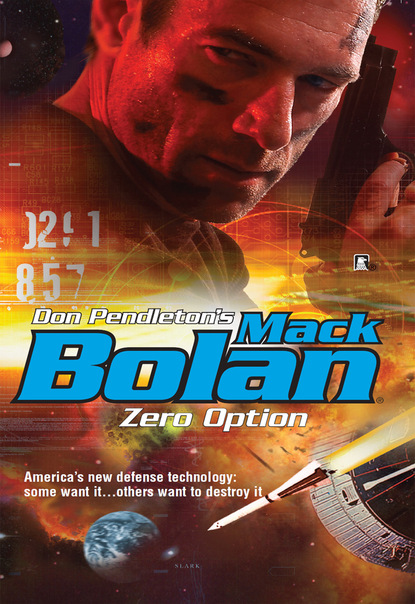
Полная версия
Havana Five

“I don’t normally poke my nose into field operations.”
The President went on, “And I appreciate your candor. But under the circumstances, I’m afraid I’ll have to ask you to provide me with as many details as possible as soon as you get them, confirmed or unconfirmed.”
“Of course, sir,” Brognola replied. “Would it be terribly out of line if I asked why?”
The President appeared to consider Brognola’s request a moment and then replied, “I suppose that’s a fair question. You must understand that under no circumstances will I permit the outbreak of a full civil war in Cuba without taking significant action. And when I say action, I mean the full-scale military kind. If such hostilities were to ensue and we had exhausted every political remedy to abate them, I would be forced to order the U.S. Marines at Guantanamo to do whatever it took to protect the U.S. and its boundaries.”
“War?” Brognola asked. “With Cuba?”
“If necessary, yes.”
Havana Five
Mack Bolan®
Don Pendleton

www.mirabooks.co.uk
Special thanks and acknowledgment to Jon Guenther for his contribution to this work.
In revenge and in love woman is more barbarous than man.
—Friedrich Nietzsche, 1844–1900
When revenge steers a person toward murder and deceit, I’ll be there to strike a blow for justice.
—Mack Bolan
CONTENTS
PROLOGUE
CHAPTER ONE
CHAPTER TWO
CHAPTER THREE
CHAPTER FOUR
CHAPTER FIVE
CHAPTER SIX
CHAPTER SEVEN
CHAPTER EIGHT
CHAPTER NINE
CHAPTER TEN
CHAPTER ELEVEN
CHAPTER TWELVE
CHAPTER THIRTEEN
CHAPTER FOURTEEN
CHAPTER FIFTEEN
CHAPTER SIXTEEN
CHAPTER SEVENTEEN
CHAPTER EIGHTEEN
CHAPTER NINETEEN
CHAPTER TWENTY
CHAPTER TWENTY-ONE
CHAPTER TWENTY-TWO
CHAPTER TWENTY-THREE
CHAPTER TWENTY-FOUR
CHAPTER TWENTY-FIVE
CHAPTER TWENTY-SIX
CHAPTER TWENTY-SEVEN
CHAPTER TWENTY-EIGHT
EPILOGUE
PROLOGUE
Gulf of Mexico
Two men wrestled the body from beneath the top deck of the small yacht anchored forty nautical miles north of the Cuban coast.
“This wasn’t supposed to be part of the plan,” Dominic Stein said.
Stein groaned under the deadweight of his load as if to emphasize the point, but his partner took no interest in the conversation. Not surprising, since Leslie Crosse did everything he could to avoid talk of grisly topics. The guy wouldn’t even go to a slasher film, although it hadn’t seemed to bother him when he’d shot their burden through the head with a silenced .380-caliber pistol.
“At least I bought us some time,” Crosse replied.
Stein had to concede that particular point. They certainly hadn’t planned on Mackenzie Waterston returning to his Pentagon office minutes after Stein and Crosse picked the lock, broke into Waterston’s files, and pilfered every document and data CD they could find on Operation Gridlock. Nobody outside of the Oval Office should have even known about the President’s initiative. The U.S. State Department’s Plan Colombia had included covert military actions by specialized units based out of Guantánamo Bay designed to neutralize training camps for the National Liberation Army, aka the ELN. Such operations were particularly lucrative for certain individuals in the array of criminal trades across Cuba and the better part of South America. Drugs were only the tip the iceberg. Precious stones, counterfeit bills and import contraband of every kind were also profitable for a group of fabled crime lords known as Havana Five.
“Okay, so we had to do it,” Stein said. “But that sure as hell doesn’t mean I have to like it.”
“Quit bitching and keep moving,” Crosse muttered. The flash in his eyes served as a warning he’d about had his fill.
Stein wouldn’t have taken that kind of mouth off just anyone; Crosse wasn’t just anyone, however, he was Stein’s best friend. They had served side by side in the DIA for more than a decade. As luck would have it, their long-term partnership had somehow slipped through the cracks of the DIA bureaucrats—there were rules about the length of time personnel could serve together—and the pair had simply decided to keep their mouths shut about that fact. It turned out fortuitously when an irresistible offer practically dropped into their laps.
“Fine, fine,” Stein said. “I just hope to high hell this’ll be worth it.”
“It’ll be worth it.”
They finally managed to get Waterston’s body to the top deck and dragged it over to the polished wood banister before Stein dropped his end. The sudden change in weight distribution nearly caused his partner to fall onto the corpse, but Crosse managed to regain his balance. He cursed under his breath but said nothing directly to Stein.
Crosse nodded in the direction of the long metal crate in the aft of the boat as his chest heaved with exertion. Stein took the cue and moved to retrieve the crate. He dragged it over to where his friend waited with the corpse and opened the lid. Several rows of silver-dollar-size holes ran along the sides and end of the crate, and after closer inspection Stein realized it was a crab cage. On a three-count, the men hauled the corpse into the cage, closed the lid and then swung the cargo winch into place.
Crosse sat back on a nearby fishing seat while Stein attached a chained hook through a large alloy hole in the top of the crate and winched it up. Stein looked at Crosse who lit a cigarette, dragged deeply on it, then nodded through the cloud of exhaled smoke. Stein swung the winch over the water and engaged the release. The crate hit the water with a splash and immediately sank.
“That should keep his body from ever floating to the surface. Huh?” Stein inquired.
Crosse nodded. “And by the time anybody does find it, we’ll have long passed from this hell into the next one, partner.”
Stein shrugged and looked uncomfortably at the deck. “Yeah, I’m sorry it went down this way for ya, Les.”
“Forget it.”
Stein thought about that for a time and then pulled a flask from the back pocket of his slacks. He took a long drink and then passed it to Crosse, who snatched it without hesitation and partook of a couple of long pulls himself. He wiped his mouth, popped in the cigarette and then handed the uncapped flask to his partner. Stein took another swig before capping the flask and pocketing it.
“What now?”
“Now we wait.”
They didn’t wait long, maybe fifteen minutes, before they heard the sound of an outboard motor buzz in the distance. At first the men didn’t see anything and both drew their government-issue Glock 21 pistols. As the seconds ticked by and the drone of the motor grew closer, Stein wondered if this part of their plan had been such a good idea, after all. He voiced his concerns.
“What are you squawking about now?” Crosse asked. “I swear to God, Dom, there’s times I think you’re paranoid or something.”
“Listen, I don’t much like these Cubans. I don’t trust them.”
“Then you should have thought about that before taking this deal. Beside, we’re doing what’s best for our country. You think those peckerless suits back in Washington would have the guts to do something like this? Now just keep quiet and everything will be fine. Let me do the talking. Okay?”
Stein wanted to protest but thought better of it and clammed up with a nod.
The source of the outboard motor became visible. Right at that moment Stein became more alert to all the sights and sounds around him. The salty smell of the Gulf waters seemed stronger and the cloak of humidity more intense than it had before now. At first he thought maybe the bourbon had started to work on him, but the sudden rise of bile, the churning in his stomach, the hammering of his heart in his chest and ears told him the many sensations were the culmination of one. Fear.
Stein shook it off and tried to regain his composure as the tiny motor launch came alongside the yacht. Crosse put his pistol away and walked forward starboard. He engaged the ship-side release and kicked out the narrow, steep stairwell that came to rest a mere couple of feet above the water line. Two large Cubans dressed in black fatigues with slung machine pistols boarded first. A man in tailored slacks and flower-print shirt followed them a moment later.
Stein got closer and nodded at the man, who studied the pair a moment with his black eyes—no sign of recognition or friendliness on his face—but then a grin split his features. He had a toothy smile so white it looked stark against his dark complexion and hair.
“Andres,” Crosse said, extending his hand.
The man shook it. “Permission to come aboard, gentlemen?”
“Granted.” Crosse looked at Stein with a knowing smile. “We were just enjoying a drink and a cigarette. May I offer you something?”
“I would love to, but alas, we’re short on time. I trust everything on board is in order?”
“Your men won’t have any trouble getting the boat into Havana’s port,” Stein cut in. “She’s totally clean.”
The man they knew only as Andres nodded and then something at Stein’s feet caught his eye. Everyone else turned their attention there, also, and Stein looked down to see the small trickle of blood run a jagged path between his shoes.
“Oh, yes,” Andres replied. “I can see she is very clean. Was there a problem?”
“Nothing you need to be concerned about,” Crosse replied. “Just a little side business we had to take care of.”
Andres’s smile lacked warmth now. “And I trust it’s taken care of for good?”
“Yeah.” Crosse and Stein held impassive expressions.
“That’s fine, I will take you at your word. My men can attend to any last-minute details on their way. So if you gentlemen would come with me, Señora Fuego waits for us.”
The men followed Andres into the small launch. The Cuban powered up the outboard motor and within a few minutes they were away from the yacht, its lights barely visible as they faded into the blanket of fog that seemed to settle on them with a swiftness Stein had never before experienced. Despite the fact their rendezvous had gone off without a hitch, Stein couldn’t help the burning in his gut. Something told him they had just made a terrible mistake.
CHAPTER ONE
Mack Bolan studied the landscape spread out before him as the Military Airlift Command flight circled for its final approach into Guantánamo Bay Naval Base. He had an almost unobstructed view from his seat in the forward compartment of the huge Boeing 757 cargo carrier, courtesy of one of his oldest friends and allies, Hal Brognola. As director of America’s most covert antiterrorist organzation, Stony Man, Brognola had requested Bolan’s attention for this mission under the behest of the President of the United States. As a friend, Brognola had asked Bolan to accept the mission. And as one friend would do for another under those circumstances, the Executioner accepted.
Bolan had come to Cuba seeking one thing: information.
“It’s very simple,” Brognola had told him a few hours earlier in an abandoned hangar at Andrews AFB. “We need you to fly into Guantánamo Bay, question a prisoner named Basilio Melendez regarding the disappearance of Colonel Mackenzie Waterston and then act based on the information provided.”
“And when you say you want me to act, you mean…”
“In whatever manner you deem the best interests of this country,” Brognola replied. “Colonel Waterston was in charge of military operations related to Plan Colombia. You have some idea of that initiative?”
Bolan nodded. “The President’s Executive Order 1-1-7-3-Alpha to the Secretary of State. The State Department is charged with conducting all operations, diplomatic or otherwise, necessary to eliminate the drug and arms-running activities designed to support the FARC, AUC and ELN, and to neutralize such operations deemed a terrorist threat to the U.S.”
“I see you keep up with the times,” Brognola said with a grin.
The Executioner shrugged. “I have my sources.”
“Yeah, and it’s not as though this information would be necessarily difficult to come by. Anyway, the Chief of Staff appointed Colonel Waterston to the Pentagon with instructions to monitor the activities of a number of special ops units operating out of Guantánamo Bay. Our boys down there got particularly interested when intelligence reports pointed to the possibility there was an ELN training camp operating full-time in Cuba. Up to this point, we’d never been able to confirm it.”
“And this is where Melendez comes in?”
“Right.” Brognola pulled the unlit cigar from his mouth, studied it a moment, then stuck it into the other side of his mouth and continued. “All Cuban prisoners were returned to their country back in the mid-nineties when we stopped detaining nationals at Gitmo. Under normal pretenses, any Cuban citizen caught there in a crime is automatically extradited to Cuban authorities.”
“Why’s Melendez special?”
“Just for the reasons you might have guessed. He had information on Waterston before we even asked. And it’s not the first time we’ve encountered him. You see, Melendez has been picked up many times before. It’s how we’ve managed to make contact with him. Normally, we turn him loose to the Cubans and they just chalk him up as a troublemaker.”
“They probably break out the party hats every time he shows up on MP blotter,” Bolan concluded.
“Precisely,” Brognola said with a frown. “But when we heard what he had to say this last time around, we thought it was probably better to keep him detained for a while.”
“Why?”
“Because Waterston’s missing and his disappearance fits what Melendez told us. So far, anyway.”
“How does this tie to the ELN and their training camp?”
“Don’t know yet,” Brognola replied. “That’s what we need you to find out. Striker, the Man is getting damned nervous about this, and I can’t really say I blame him. Waterston isn’t the only one to disappear. Two other agents with the Defense Intelligence Agency have been MIA over a week. We have reason to believe they’re connected with Waterston’s disappearance. We need you at Gitmo as soon as possible. You’ll use the Brandon Stone cover, a special investigator with the Criminal Investigation Division.”
Now dressed in full Army greens, Bolan considered the mission ahead. He didn’t have the first idea what Melendez might know, but the Cuban was his only lead to finding Mackenzie Waterston. How the DIA fit into all of it was another mystery—one he’d probably solve once he located Waterston or at least found out what happened to the missing Pentagon official—as well as the alleged ELN training camp. Brognola didn’t have to tell Bolan what to do if he actually discovered the ELN operating inside Cuba. Bolan already knew what to do.
Identify. Isolate. Destroy.
“WELCOME TO GUANTÁNAMO BAY, sir,” the Marine corporal said with a salute.
Bolan eyed the young Marine’s name tag. “Relax, Northrop, before you strain something.”
The Marine eased up and flashed a sheepish smile. “Aye, sir.”
Bolan tossed his OD canvas bag in the back of the open-top M998 Hummer—making sure it remained in easy reach—and then climbed in the front. The bag had been loaded aboard the flight and carried two tools of the Executioner’s trade: a Beretta 93-R pistol and the flagship pride and joy of Israeli Military Industries, a .44 Magnum Desert Eagle. Spare magazines and holsters accompanied the arms.
“This your first time in Gitmo, sir?” the Marine asked when they were under way.
“No,” Bolan said. “But it’s been a while.”
“It’s damn hot down here,” the Marine said. Bolan looked at him with disbelief at first but then noticed the broad smile on the soldier’s face. “Just kidding, sir. I knew you’d already figured that out.”
Bolan nodded, acknowledged the quip with a half smile and then decided to take his own advice to lighten up. They made small talk the remainder of their five-minute drive from the airstrip to the main detention facility. The Marine indicated he’d wait until Bolan finished.
“Might be a while,” the Executioner said.
“No problem, sir. I’m your escort while you’re on the base. Once we’ve finished here, I’ll show you to the VIP billets.”
Bolan nodded and moved inside. He passed through two metal detectors—requiring the removal of all his brass and medals and submission to a hand wand before they cleared him—and then signed in. Once the basics were complete, a Marine cadre escorted the Executioner to a six-by-six room occupied by a bare, gunmetal gray table bolted to the floor and two plastic folding chairs. He waited nearly ten minutes before a door with a wire-mesh window opened and a short man in neon-orange coveralls stepped into the room under heavy guard.
Bolan stood against the wall, arms folded, and gestured to the unoccupied chairs. “Sit down.”
He studied Basilio Melendez as he sat. The man had black hair and a matching beard. His brown eyes possessed a beady curiosity. A pair of faint scars ran down the right side of his neck. His arms were grimy and soiled, and his fingers were stained yellow from years of continuous tobacco use.
“You’re Melendez,” Bolan said.
The man said nothing as he obviously perceived Bolan hadn’t meant it as a question. That demonstrated he wasn’t obtuse, and the Executioner knew he’d have to tread cautiously on this one. Bolan wouldn’t get far being coy with Melendez; the Cuban was obviously intelligent. Besides, he’d met guys like Melendez before and he’d found he could never quite trust them. They were always studying the angles—looking for the best possible way to get ahead—and they had a knack for manipulating even the most unfavorable circumstances to their advantage given the time and opening.
“My name’s Stone,” Bolan began. “I’m with the Criminal Investigation Division of the United States Army. I’m told you have information that’s of great interest to the U.S. government.”
Melendez didn’t say anything for a minute. He just sighed deeply a couple of times and peered at Bolan from under hooded eyelids. It looked as though he’d been through hell. Bolan wanted to offer him something to drink, maybe get him some cigarettes because he knew prisoners weren’t permitted to smoke; anything that might help establish a rapport with him. That was assuming Melendez wanted to cooperate.
Abruptly, and in flawless English, Melendez said, “What do you wish to know?”
“That’s a start,” Bolan said, and he took a seat across from Melendez. “Tell me how you know about Colonel Waterston.”
“I spend lots of time in Cuban jails,” he said. “I overhear things.”
“Okay, fine, but why would Waterston’s name come up in a Cuban jail?”
“It seems you know very little about my country, Stone,” Melendez replied. “You have heard of Havana Five?”
Bolan shook his head, although he knew plenty about them. The crime lords of the Cuban underworld controlled nearly all the illicit trades throughout the country from their power base in Havana, and had done so for the past three decades. Beginning in the early seventies, Havana Five overwhelmed the Cuban community with drugs, guns, sex and every other profitable vice imaginable. Five men, each with a specific piece of the Cuban island, pooled their resources and built the single most powerful crime cartel in history.
“Many believe they do not exist,” Melendez said. “That they have never existed. But I, you see…I know better. I know these men are real. I know they exist and I know what they’re capable of doing. And I know exactly what they did to your friend, Waterston.”
“And what’s that?”
“They killed him,” Melendez said. “I hear they shot him through the head and they dumped his body.”
“Where?”
“How should I know this? The men I heard talking did not say. Perhaps he was buried, perhaps he sleeps with the fishes. The point is that I hear he’s dead and I believe it. And if I say more, then I’m dead.”
Bolan shook his head. “You’re under our protection now, Melendez. We’re not going to throw you back into circulation again.”
“You? You think you can protect me here?” Melendez scowled and emitted a scoffing laugh. “Don’t be naive. Nobody is safe from Havana Five. My days are numbered, of this I’m sure.”
Bolan leaned forward. “Then why come to us if you don’t think we can protect you? Why not take your chances out there on the streets of your own country?”
“Because maybe in here I have a small chance. Out there, I am dead for certain.”
“Why? What makes you think they even know you have this information?”
“Because the people I know, they know other people. And those people are connected to Havana Five. There is much money to be made in their business, American. And they do not like when others interfere with their profit. They will go to great lengths to keep making money, to keep their society secret.”
“To the point they think they can hide an ELN terrorist training camp inside Cuba without us finding out?” Bolan asked.
Something changed in Melendez’s expression, but the Cuban quickly recovered. Not before Bolan struck a nerve, however. For a long time they shared only silence. Bolan didn’t plan to say anything else. It seemed the better tactic would be to wait for Melendez to speak first, to betray something he thought Bolan didn’t know about. Melendez would hold on to every ace he could in the hope of swinging a better deal down the line if things went sour or the scanty information he provided didn’t pan out.
“How do you know about this?”
Bolan decided to show his own cards. “Come on, Melendez. It’s what Waterston was working on. We both know it. Just like I know it’s pretty unlikely you would overhear talk of Waterston’s murder without mention of why he was killed. So quit pretending and talk.”
And for the next half hour, Basilio Melendez talked of two men—Americans being held in a Cuban jail—who spoke of killing Waterston and how they were betrayed by someone inside Havana Five. He also told how they talked to each other in English because the cops weren’t present and he was the only other one in the jail, and how he’d pretended not to speak a word of it. And they talked and talked, and they revealed how they had made a deal with someone to let them in on the location of the training camp, and instead they were betrayed and barely escaped with their necks intact. And finally they had traveled to a remote suburb of Matanzas and purposely got arrested in the hope of evading their unnamed pursuers. It was a wild story.
And Mack Bolan believed every word.
“But you never heard where this training camp was at?” Bolan asked after Melendez finished his narrative.
The Cuban shook his head. “I do not think they knew.”
Bolan rose then. “I’m going to look into this, Melendez. In the meantime, I’ll see about getting you moved off the base and back to the U.S. I think you’ll be safer there.”
“Please, Stone,” Melendez said with pleading eyes. “I care nothing for myself. Like I said, I’m a dead man. But my little sister…she has been good. Please, you must protect her. I will do anything.”
Bolan would only promise he’d look into it and then left the detention facility. He needed to run this new intelligence by Brognola to see what came of it before he’d know the best way to proceed. Stony Man maintained a technological resources network more advanced than anything available to Bolan in the field, and Aaron “The Bear” Kurtzman—a cybernetics wizard extraordinaire and intelligence sponge—could run through the scenarios and come back with more sound leads in one-tenth the time it would take Bolan to run down the old fashioned way.












